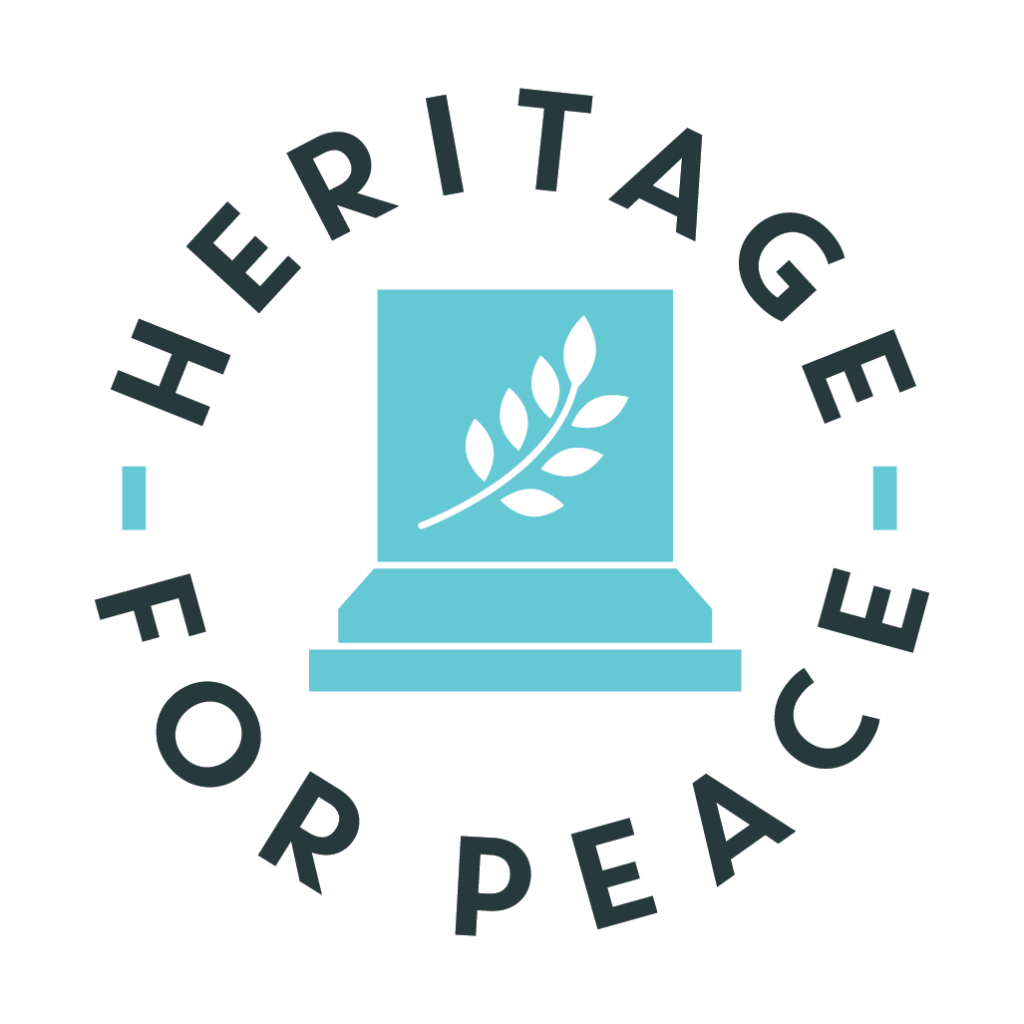In response to the catastrophic destruction and loss of Syria’s heritage by Daesh (or the Islamic State), Heritage for Peace with Save Muslim Heritage (SMH) has developed the SHeLTr project. SHeLTr stands for ‘Syrian’s Heritage Law Training’ project
It aims to assist those managing legal cases in the Syrian courts in the Idlib region to understand the legal obligations under international, national and
Islamic law relating to heritage protection.
Heritage for Peace and their partners have researched the intersections between these three branches of law relating to the safeguarding of heritage and we have invited community leaders, heritage professionals and law officials to partake in E-learning training on the legal framework that forbids the destruction of heritage, looting and the illicit antiquities trade.
Funded in March 2016 by Gerda Henkel Stiftung, the project has a planned completion date of 2020.
WHO FUNDS US?
This project has been funded thanks to the generous support of the
Gerda Henkel Stiftung

The Gerda Henkel Foundation was established in June 1976 by Lisa Maskell in memory of her mother Gerda Henkel as an incorporated foundation under civil law, headquartered in Düsseldorf.
The Gerda Henkel Foundation concentrates its support on the historical humanities. In some of the programmes the Foundation furthermore addresses issues of great relevance to contemporary life and the future, above all as part of its special programme “Security, Society and the State”. As part of the Lisa Maskell Fellowship programme, the Foundation supports young scholars in the humanities in both Africa and Southeast Asia. With its “Patrimonies” funding initiative it promotes the preservation of the cultural heritage, specifically in regions experiencing crisis. Research that places current challenging issues in a greater historical context form the focus of the “Democracy as Utopia, Experience and Threat” and “Lost Cities. Perception of and living with abandoned cities in the cultures of the world” funding programmes. In connection with funded projects, the Foundation also provides assistance for social support measures as part of complementary projects. The Gerda Henkel Foundation can by virtue of its statutes pursue its objectives both inside and outside Germany.
Why is it needed?

Syria holds a rich cultural history. Having witnessed the rise of great empires and the spread of major world religions, it holds six declared UNESCO World Heritage Sites as well as eleven inscriptions on the World Heritage Tentative List.
In addition, there are numerous rare and important collections of antiquities housed in the museums of Damascus, Aleppo, Raqqa, Homs, Hama, Daraa and many others.
In 2015, most of Syria’s cultural sites were located within conflict areas, and are still today affected by the general breakdown of law and order. They have suffered from various threats, resulting in a range of effects from slight damage to total destruction and looting varying from a few holes to wide-scale devastation.
However, Syria’s heritage is not only about physical remains: it transcends its material significance insofar as it represents the people’s identity and stands as a symbol between society’s past and future.
As the conflict changes, so does the nature of the destruction. Whilst damage from the fighting and looting are still significant threats, today a large amount of damage is connected to mismanagement, and illegal development.
The law courts in the Idlib region of Syria are currently faced with numerous heritage cases on a daily basis. Through this project, Heritage for Peace aims to provide training for court staff and heritage professionals to better handle these cases.
E-LEARNING PLAN
5
Lessons
4
Videos
All
Skill Level
4:11h
Duration
English
Language
Share This course:
Overview
The E-Learning course consists of online ‘articulates’ designed by DynaMind, an innovative eLearning organisation based in Australia. The ‘articulates’ are a dynamic presentation format with scripted voice-overs to offer an original online training method. The presentations, which are in both English and Arabic, will be supported by practical exercises to enable the participants to apply their learned theory to likely situations. A ‘Train the Trainer’ booklet is being developed to assist the in-situ trainers to deliver the course.
The programme is divided into three parts with a total of 13 online ‘articulate’ presentations and will be delivered in a five-day training course in the UOSSM Centre in Bab Al-Hawa, north Syria.
THE TRAINING
Meet the team
Dr. Isber Sabrine
Project Manager
Dr. Bastien Varoutsikos
Project Coordinator (Phase 1)
Annis Turner
Project Coordinator (Phase 2)
Dr. Joanne Dingwall McCafferty
Project Coordinator (Phase 3)
Hannah Skowronski
Project Assistant
Yousef Awad
Translator and Project assistant
Dr. Emma Cunliffe
Consultant
Dr. Rene Teijgeler
Consultant
PLEASE CONTACT US TO REGISTER FOR THE COURSE
If you have any questions regarding my courses, please fill out the form below and I’ll get back to you as soon as possible.
